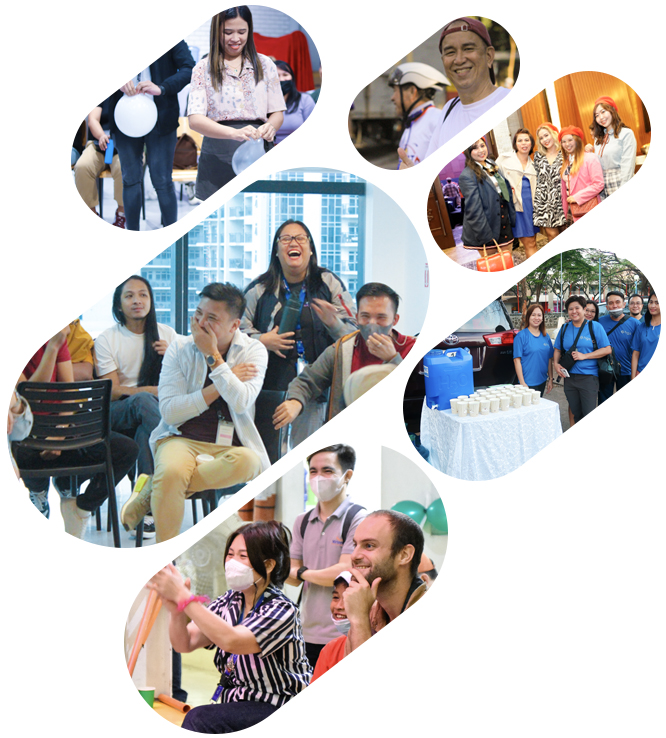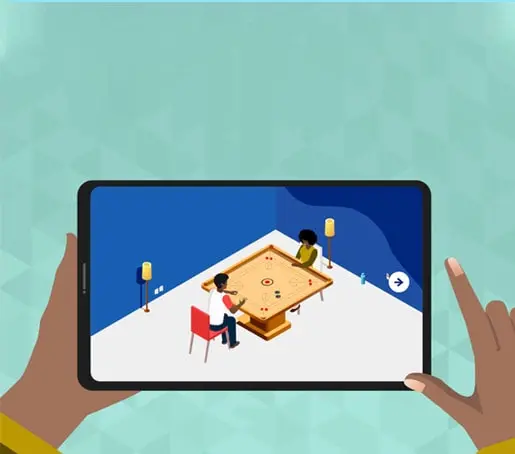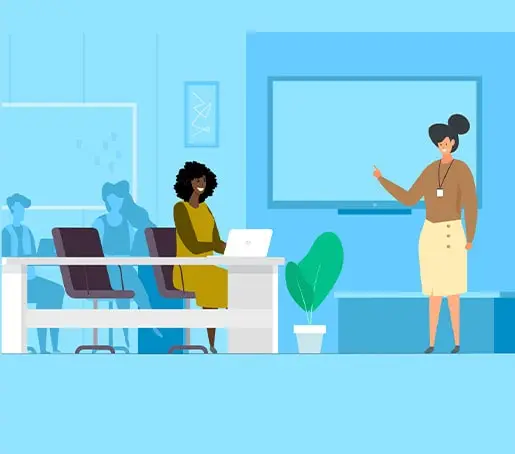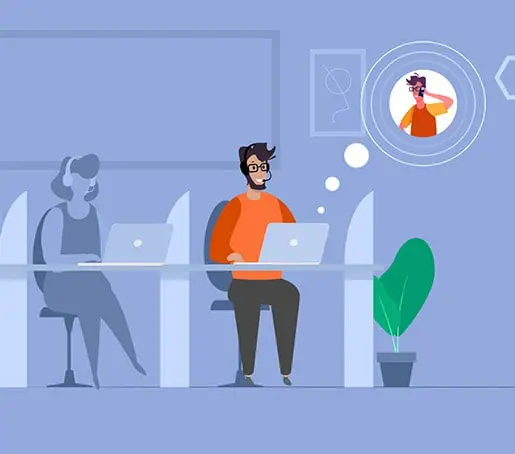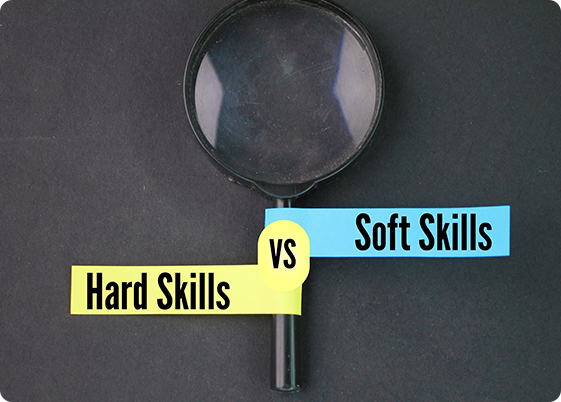
In today's competitive job landscape, achieving career success is more complex than just possessing technical skills and capabilities. Employers are seeking individuals who are qualified and have the skills to communicate effectively, collaborate, and adapt as needed. You may hear of the distinction between hard skills and soft skills.
Understanding the "difference between hard skills and soft skills" and "how to improve soft skills and hard skills" can give you a significant edge as you head into either your first opportunity, your career advancement strategies, or thinking for the long term about building leadership capability.
This blog discusses “what are hard skills and soft skills”, how they differ, why both matter, and actionable tips to develop them for career growth.
What Are Hard Skills?
Hard skills are typically the technical, measurable skills that you gain through educational programs, formal training, or specific work experience. If you’re wondering “what are hard skills?”, they are usually quantifiable, can be easily tested, and are often a job prerequisite.
Some soft skills and hard skills examples illustrate the difference: while hard skills may involve coding in Python, creating financial reports, or designing a marketing campaign, soft skills include communication, teamwork, and emotional intelligence.
Examples of hard skills include:
- Computer programming languages (Java, Python, C++)
- Data analysis and interpretation
- Digital marketing and SEO
- Financial forecasting
- Graphic design and UX tools
- Proficiency in foreign languages
- Project management software (e.g., Jira, Asana)
- Accounting or legal compliance knowledge
Hard skills answer the question: “Can you do the job?”

What Are Soft Skills?
Soft skills, in contrast, are interpersonal and behavioural attributes that define how you work, interact with others, and manage workplace challenges. When answering the question “what are soft skills?”, they are less tangible than hard skills and often more difficult to measure.
Unlike hard skills, which are task-oriented, soft skills are about people and process—how you manage relationships, handle stress, or collaborate in a team.
Examples of soft skills include:
- Effective communication
- Problem-solving
- Adaptability
- Emotional intelligence
- Time management
- Conflict resolution
- Leadership and motivation
- Team collaboration
- Active listening
Soft skills answer the question: “How will you do the job?”
For instance, customer service soft skills like empathy, patience, and active listening are as essential as product knowledge in delivering customer satisfaction.

Hard Skills vs. Soft Skills
Both types of skills are essential, but they serve different purposes in professional growth. Let’s break down the difference between hard skills and soft skills across key areas:
Measurability
- Hard skills can be easily measured through exams, certifications, or practical demonstrations. For example, a graphic designer can show a portfolio to prove design proficiency.
- Soft skills, on the other hand, are more subjective. Employers assess them through interviews, behavioural questions, and workplace interactions.
Acquisition
- Hard skills are typically acquired through structured learning, such as university courses, online certifications, or on-the-job training.
- Soft skills develop gradually through experiences, mentorship, feedback, and practice in real-life scenarios.
Examples
Hard skills vs soft skills side by side:
Hard Skill: Excel financial modeling
Soft Skill:Critical thinking to interpret data trends
Hard Skill: Coding in JavaScript
Soft Skill:Teamwork while collaborating on app development
Hard Skill:Multilingual fluency
Soft Skill:Cultural awareness and adaptability

Job Relevance
- Hard skills qualify you for the role. Without them, you may not even be considered for shortlisting.
- Soft skills help you thrive in your role, manage challenges, and adapt to the workplace culture.
For example, in BPO jobs in the Philippines, employees need skills for customer service excellence(like product knowledge and CRM software use) as well as empathy, active listening, and conflict resolution.
Resume Importance
- Hard skills often dominate the technical skills section of your CV, making it easy for recruiters to scan for required competencies.
- Soft skills are highlighted in cover letters, interviews, and demonstrated through your professional experience or achievements.
Together, they balance your application—showing you can not only do the job but also do it well within a team and organizational culture.
How to Develop Hard and Soft Skills?
Developing hard and soft skills is not a one-time effort—it’s an ongoing process that evolves with your career journey. While hard skills can be acquired through structured learning and practice, soft skills grow through experience, reflection, and feedback. To achieve lasting career success, it’s important to strike a balance between the two and actively work on both.
Enhancing Your Hard Skills
The key to enhancing hard skills lies in continuous learning, applying knowledge in real-world settings, and validating your expertise with credible certifications. Here is how to develop hard skills:
Take Online Courses
Online platforms like Coursera, LinkedIn Learning, and Udemy offer thousands of courses across domains—programming, finance, design, data science, and more. Regularly upskilling keeps you relevant in fast-changing industries.
Get Certified
Professional certifications add credibility to your resume. For instance, certifications such as PMP (Project Management Professional) or CPA (Chartered Professional Accountant) demonstrate mastery of hard skills.
Practice
Practical application is the best teacher. Build projects, take internships, or volunteer to use your skills in real-world contexts. For example, a budding web developer can create personal websites or contribute to open-source projects.
Developing Soft Skills
By focusing on areas such as communication, empathy, and leadership, you can enhance your professional relationships, foster workplace harmony, and cultivate long-term career resilience. Check out how to develop soft skills:
Seek Feedback
Ask colleagues, managers, or mentors for honest feedback about your communication, teamwork, or leadership style. Self-awareness is the first step to growth.
Join Workshops or Classes
Soft skills workshops—covering leadership, emotional intelligence, or negotiation—help you develop practical techniques. Many organisations also sponsor in-house training.
Practice Active Listening
Good communication isn’t just about speaking well—it’s also about listening. Practice techniques like paraphrasing what someone has said, maintaining eye contact, and asking clarifying questions. These skills are exceptionally vital for customer service excellence.
Conclusion
In the debate of soft skills vs hard skills, the truth is clear: you need both to succeed. Hard skills may land you the job, but soft skills ensure you keep it and grow within your role. Employers increasingly value professionals who combine technical expertise with emotional intelligence, adaptability, and collaboration.
Whether you’re pursuing BPO jobs in the Philippines, IT roles, or leadership positions, focusing on both sets of skills will ensure holistic career growth. By continuously learning, seeking feedback, and applying career advancement strategies, you can position yourself for long-term success.
At HGS Philippines, we believe that a balance of hard and soft skills is what drives customer service excellence and long-term career success.
Frequently Asked Questions (FAQs)
Which Skill Set Do Employers Value More?
Neither is more important universally—employers seek a balance. Technical roles may require strong hard skills, but soft skills like teamwork and communication are crucial for career progression.
How can I balance hard and soft skills for career success?
Dedicate time to both. Keep upskilling through courses for hard skills while actively practising soft skills in daily interactions.
How do soft skills contribute to job satisfaction?
Strong soft skills lead to better teamwork, reduced workplace conflict, and improved communication—all of which enhance job satisfaction.
What are the most in-demand soft skills employers look for?
The most sought-after soft skills include adaptability, emotional intelligence, communication, leadership, and problem-solving.
 Philippines
Philippines Canada
Canada Colombia
Colombia India
India Jamaica
Jamaica UK
UK US
US SA
SA